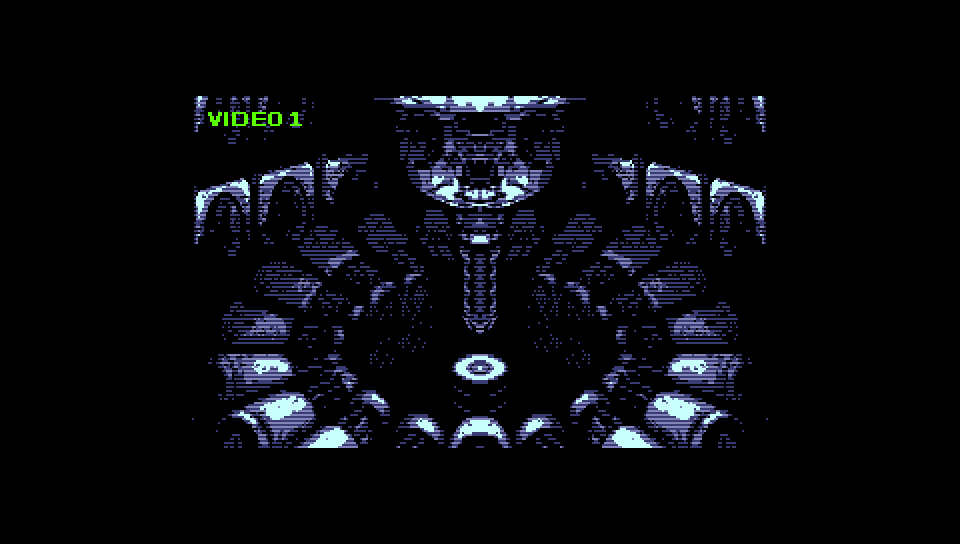The glitches are part of the game? I'm on board.
Axiom Verge, a labor of love from sole designer Thomas Happ, hits all the right genre buttons. It's a game for Metroid-vania fans from someone who clearly understands what the label entails. The Metroid influence in particular stands out, perhaps to the point of distraction, but the wide variety of useful weapons and the game's dissonant world full of (purposeful) glitches give Axiom Verge its own identity.
The narrative in Axiom Verge attempts to merge the ordinary with the extraordinary. The protagonist Trace represents the former, a scientist who sustains an injury and finds himself in a strange technological world full of large beings who speak to him in cryptic fragments. The premise creates a strong first impression, but each new story beat only adds more confusion and mystery. Sometimes it works, but for the most part the narrative meanders in its obtuseness. The world itself proves far more effective, and it's where Axiom Verge begins to shine.
In classic Metroidvania fashion, the game features a series of connected environments with distinct artistic motifs. Axiom Verge nails the sci-fi aesthetic with its bleak colors, futuristic architecture, and evocative soundtrack. Certain areas bleed together and make it hard to establish an internal visual map, though it's natural to get lost in a Metroidvania game. Fans of 2D Metroid will see the clear artistic inspiration, but Axiom Verge takes things a step further in the form of glitches.
Trace eventually receives the field disruptor, which allows players to manipulate the world. Scattered throughout each environment are deformed areas with broken pixels and other strange anomalies. These areas are a product of the game itself, and Axiom Verge embraces the glitches of old NES games. It encourages players to use the field disruptor to uncover secret items and even secret environments. A few hours into the game I was just waving the disruptor all over the place, even on normal surfaces. All of a sudden a wall opened up and I found myself in an entirely glitched-out world with far more difficult enemies. It's a microcosm of Axiom Verge's emphasis on discovery, and it only strengthens the experience.
The weapons also add to the experience, and there are plenty to find. Trace starts off with a gun that simply points and shoots, but eventually he gains access to a hand cannon that breaks off into smaller shots, an electricity gun that goes through walls, and a gun that creates small columns of fire. They all feel different, and more importantly, the game establishes scenarios in which players want to switch between weapons. I certainly have my favorites—the electricity gun is constantly in the rotation—but I felt compelled to try them all depending on the enemy type.
On the one hand I appreciate the fact that all weapons have a purpose, but the variety of enemies results in a lot of switching back and forth. There are certain levels in which it becomes tedious, especially in the second half of the game in which players have a lot of weapons. Boss fights shift in the other direction and feel less dynamic, as one weapon is usually enough to get the job done. It all signifies the contrast between the variety of weapons—a clear positive—and the balance of weapon use, which falls a bit short.
Axiom Verge includes more power-ups and skills beyond guns. In addition to health nodes and other goodies typically found in games of the genre, players also find important environmental skills such as the ability to pass through thin walls or send out small drones to navigate small spaces. These upgrades compliment the broad arsenal of weapons and add to the variety of the mechanics. Sure, there's a lot of shooting, but the game includes plenty of platforming and item use as well to establish a more engaging campaign.
The level of execution and polish in Axiom Verge makes it seem as though it came from a well-established studio, let alone a single person. There's a confidence in the design that channels the best parts of successful Metroidvania games. The glitch theme doesn't do quite enough to elevate Axiom Verge to classic status, but it does allow the game to builds its own identity and thus deliver a singular experience that should be on the radar of any PS4 owner.
-
Classic metroidvania design
-
Plenty of cool weapons
-
Switching weapons can become tedious
-
Field disruptor
-
Obtuse narrative
-
Some underwhelming boss fights
-
Great sci-fi aesthetic
-
Looks similar to 2D Metroid games
Axiom Verge
-
Axiom Verge #1
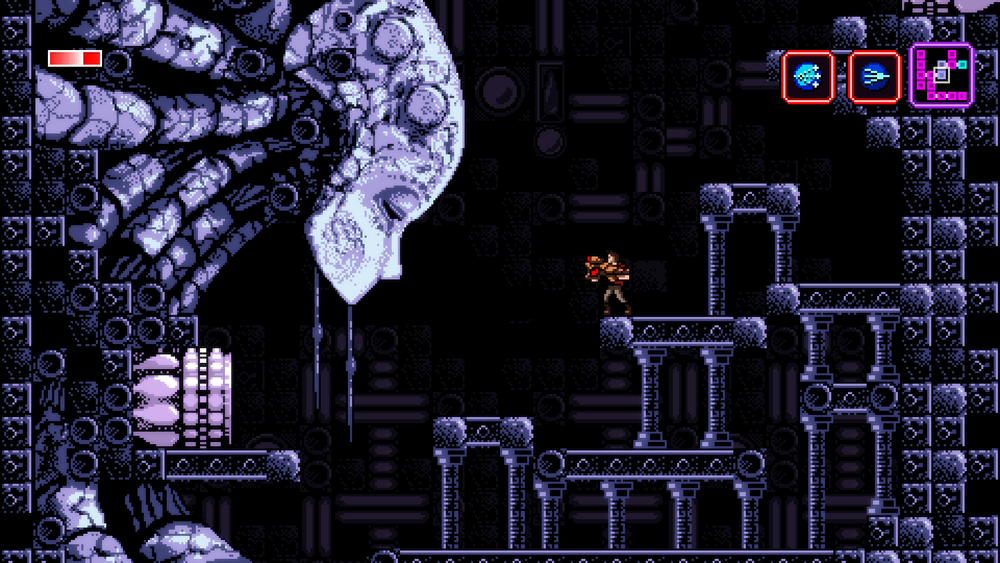
-
Axiom Verge #2
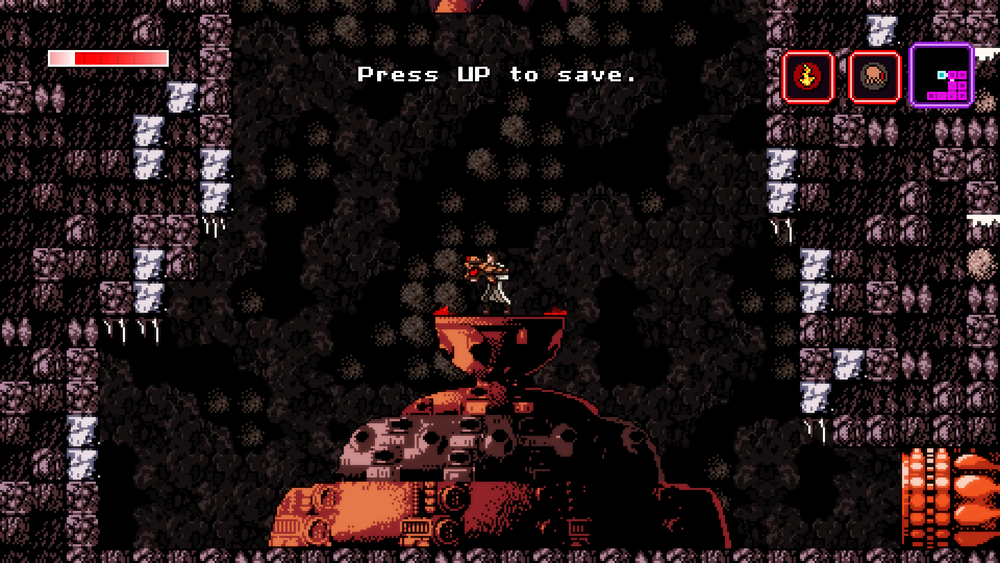
-
Axiom Verge #3
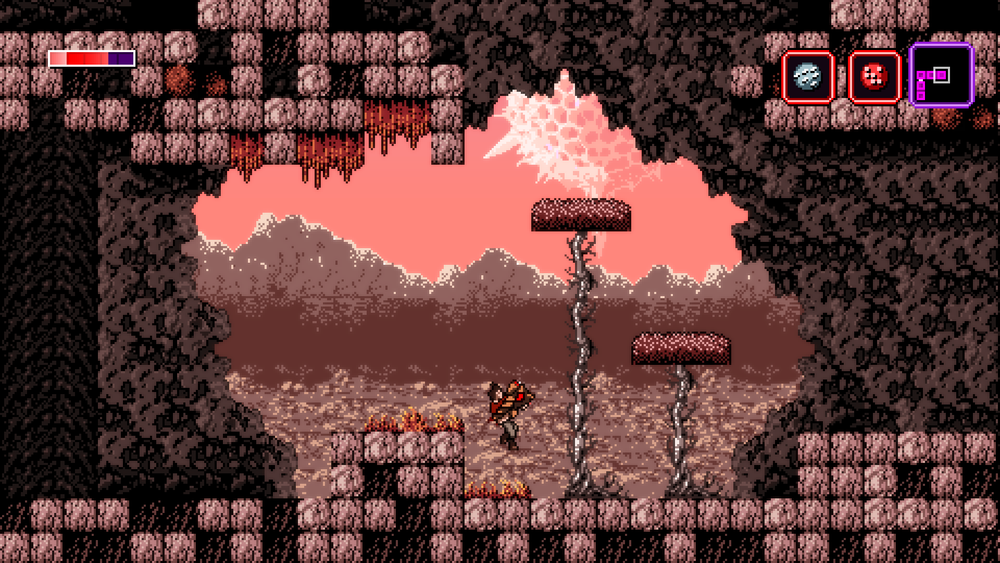
-
Axiom Verge #4
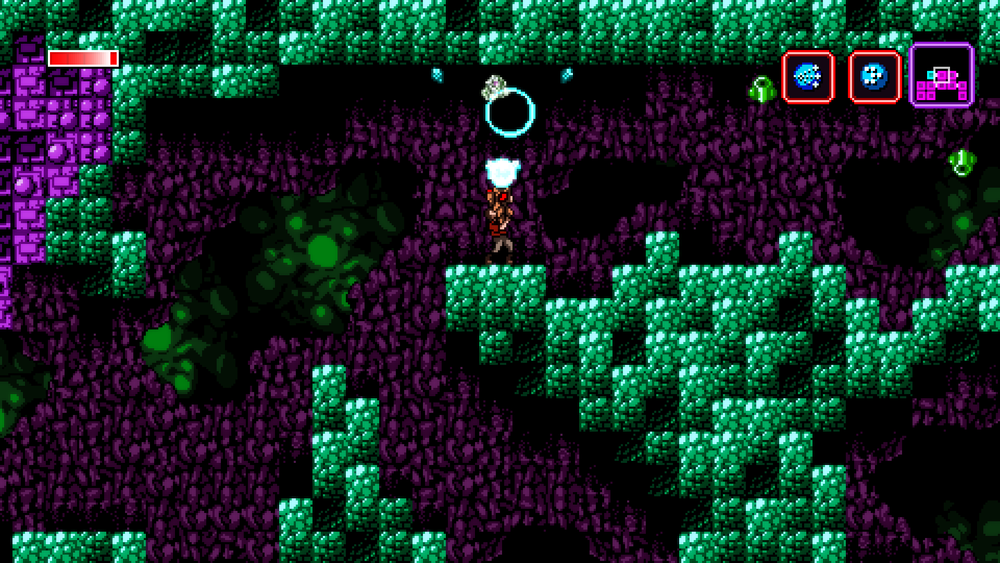
-
Axiom Verge #5
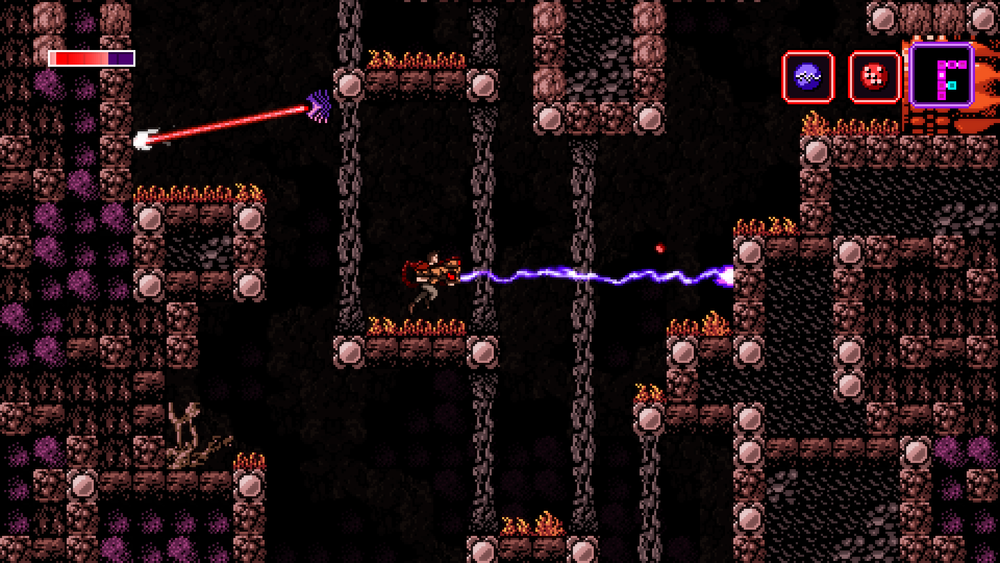
-
Axiom Verge #6
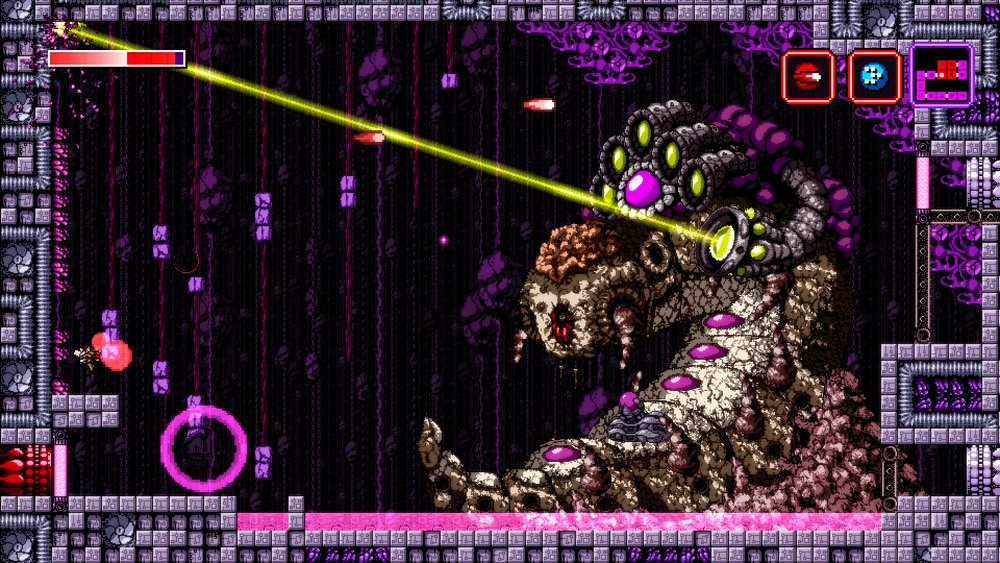
-
Axiom Verge #7
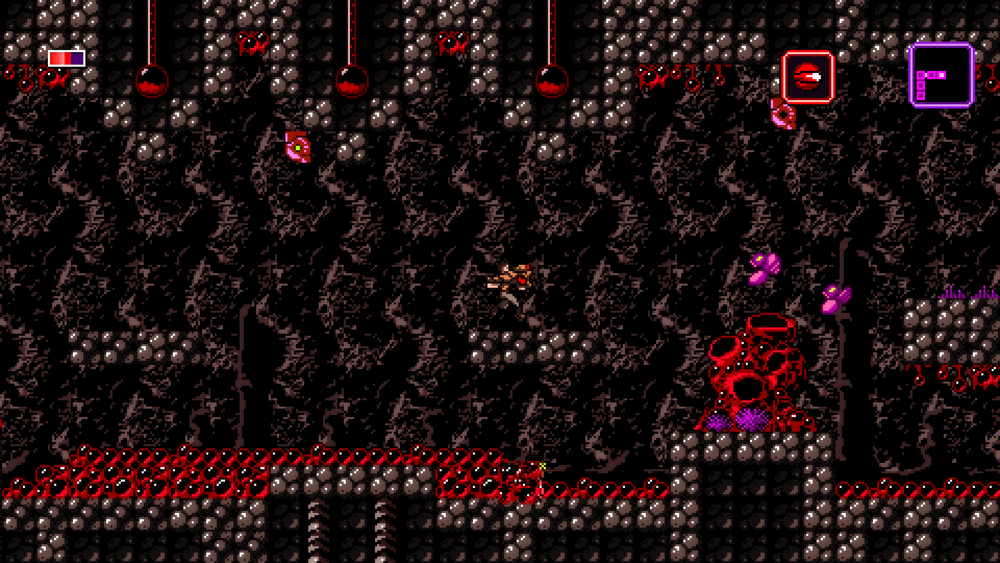
-
Axiom Verge #8
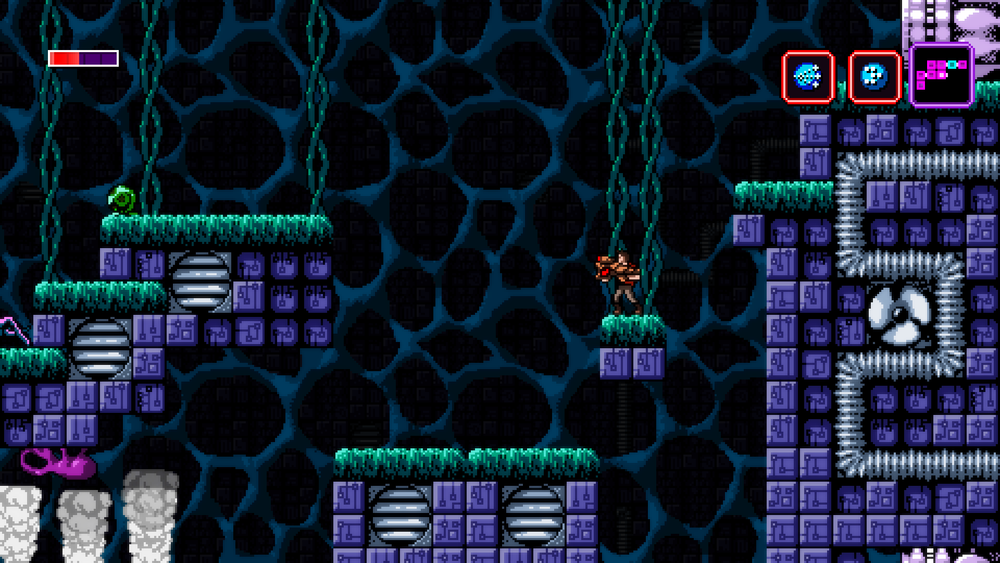
-
Axiom Verge #9
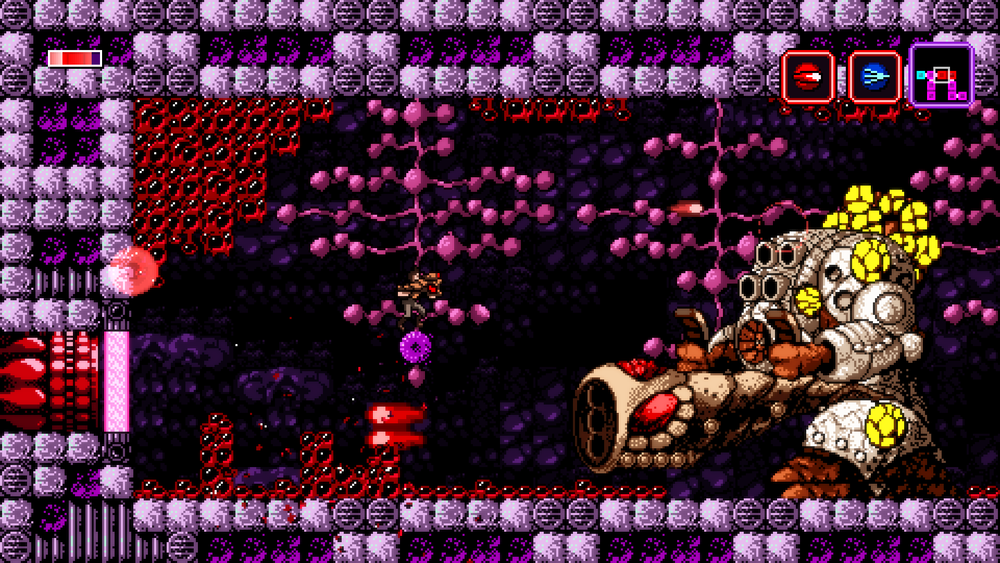
-
Axiom Verge #10
